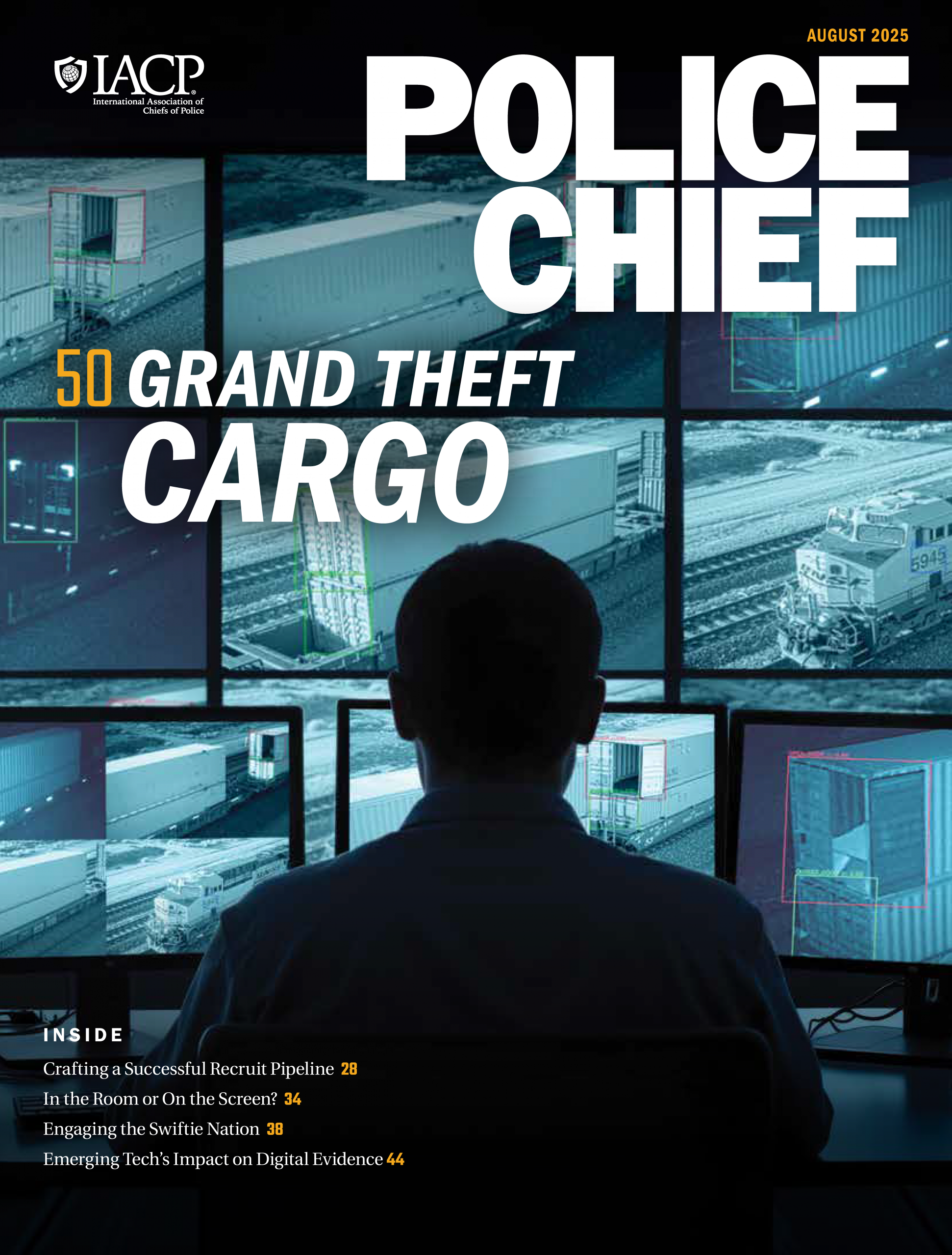| IACP Working for You |
|---|
|
In the mission to support the law enforcement leaders of today and develop the leaders of tomorrow, the IACP is constantly involved in advocacy, programs, research, and initiatives related to cutting-edge issues. BLUE App: A Catalyst for Life-Saving Change IACP, in collaboration with the Philadelphia Police Department and Point Guard Productions, has developed a software application for law enforcement officers who may be struggling with mental and behavioral health issues and are at risk for suicide. BLUE App is centered around a 30-minute docudrama (BLUE) that was conceived to raise public awareness of frequent suicides among law enforcement in the United States. The BLUE App also includes a confidential self-assessment and the IACP report Breaking the Silence, and a progressive set of tools and resources will be added over the next 12 months. The initiative serves as a proactive step towards reducing law enforcement suicides and creating an interactive community to support the well-being of law enforcement personnel. To learn more, please contact IACP’s Center for Officer Safety and Wellness at officersafety@theiacp.org. Using Community Policing to Counter Violent Extremism: 5 Key Principles for Law Enforcement State, local, and tribal (SLT) law enforcement agencies are responding to the threats posed by violent extremism by integrating community-oriented policing principles and homeland security. Community policing encourages law enforcement to use partnerships and problem-solving techniques to proactively address public safety concerns. It promotes leveraging the most valuable resource in any community—its members—by building relationships based on understanding, trust, and respect. Community members can further inform law enforcement about their religions, cultures, and beliefs, so that officers are able to distinguish between constitutionally protected and criminal behavior. More important, community members are best positioned to recognize suspicious activities in their communities. The Using Community Policing to Counter Violent Extremism: 5 Key Principles for Law Enforcement guide was developed in conjunction with Office of Community Oriented Policing Services (COPS) to serve as a resource for law enforcement organizations considering, planning, and employing community policing practices tailored to countering violent extremism in their communities. The guide details the five key community policing principles and the roles they play in contributing to homeland security. Access the guide via www.theiacp.org/CounteringViolentExtremism. IACP/Discover Policing Virtual Police Ride-Along The International Association of Chiefs of Police (IACP), in partnership with the U.S. Department of Justice, Office of Community Oriented Policing Services (COPS Office), has released a unique career exploration resource to aid job seekers in assessing their fit to the profession of community policing. The IACP/Discover Policing Virtual Police Ride-Along is a realistic job preview for law enforcement. Through a series of brief animated videos depicting common police scenarios, along with corresponding self-assessment questions, viewers get a sense for key aspects of the job and their ability to perform them. Armed with a deeper understanding of the profession, job seekers can make more informed decisions about moving forward with the application process, saving time and effort for both the applicant and the hiring agency. ♦ For more information, contact Tracy Philips at philips@theiacp.org or visit http://discoverpolicing.org. |


